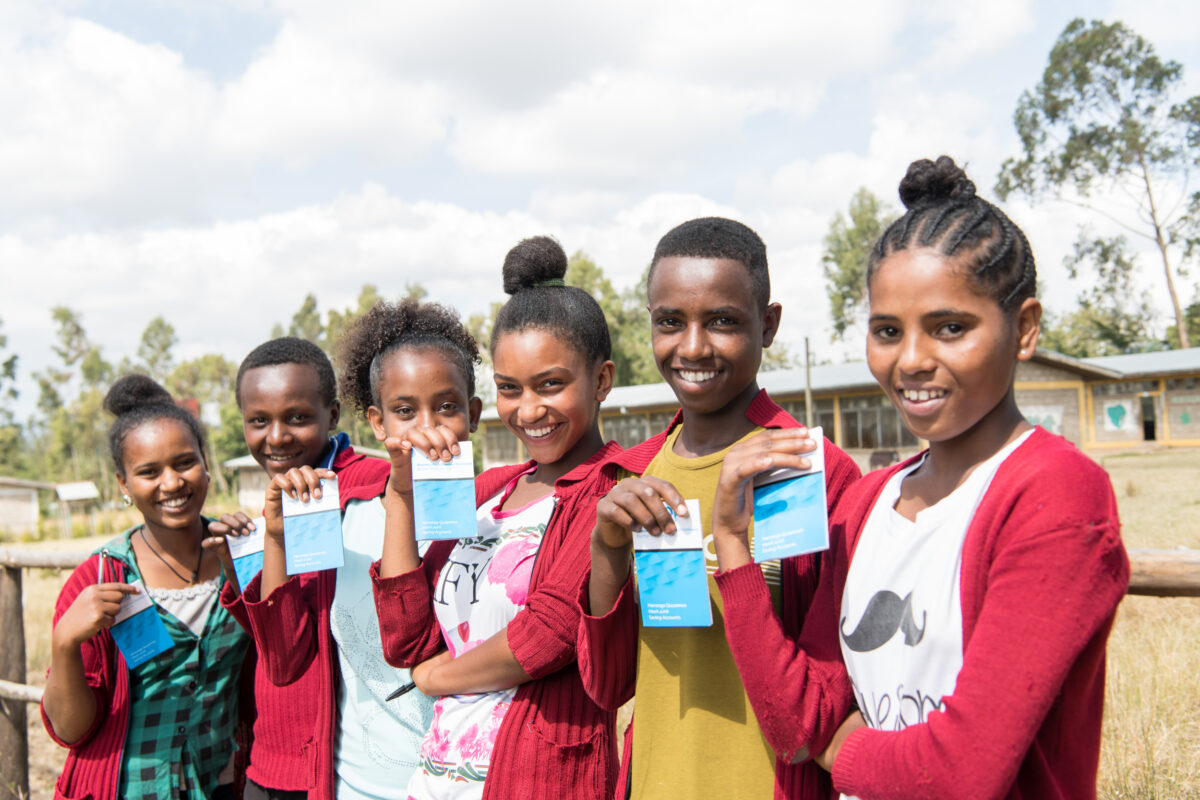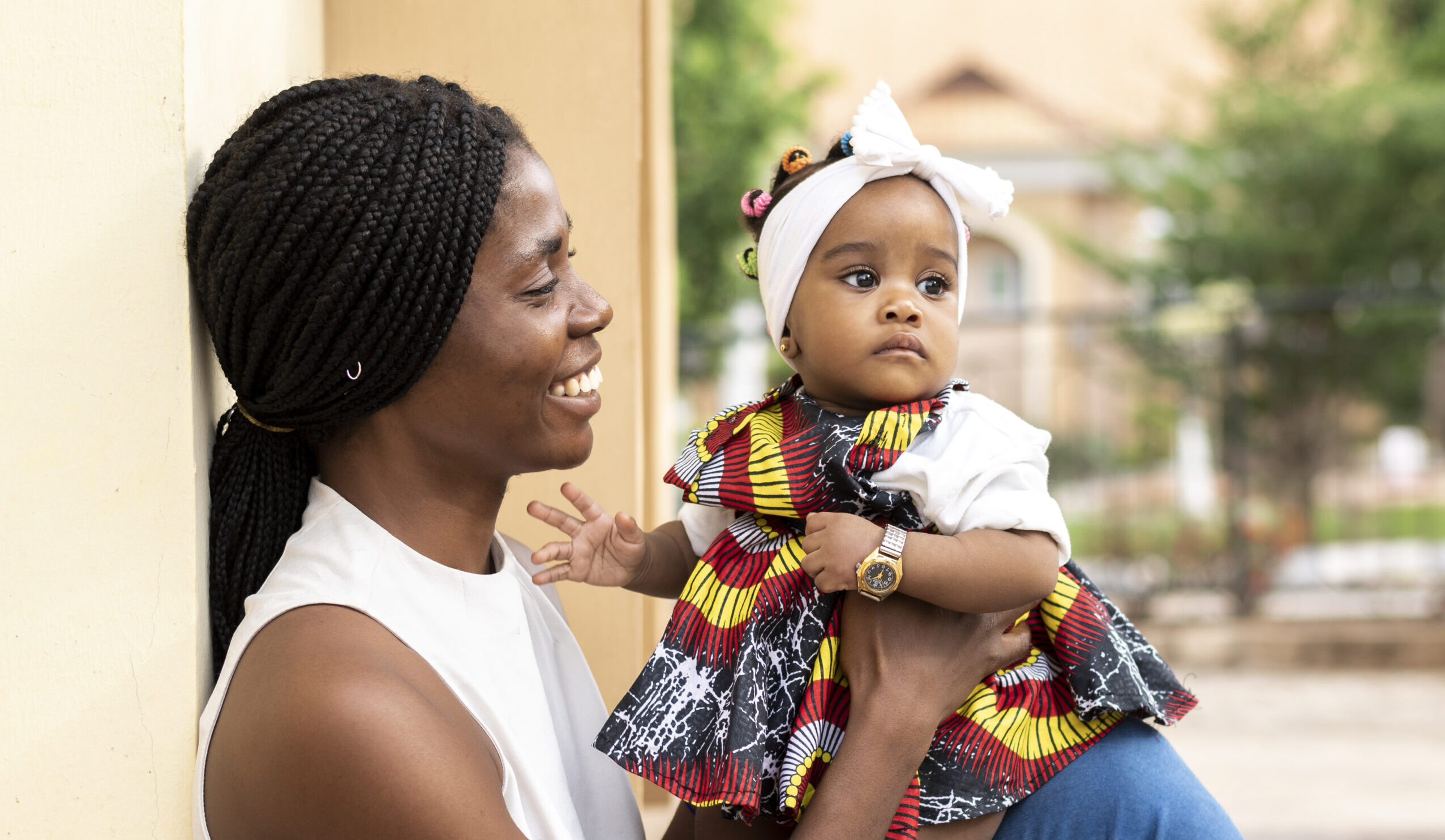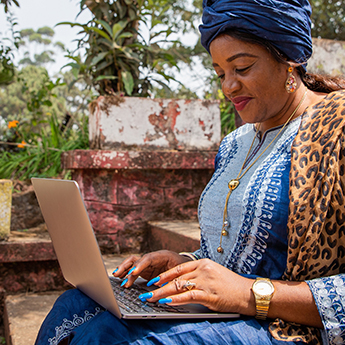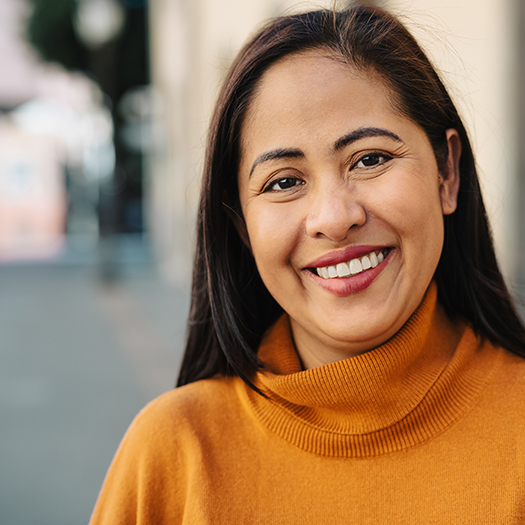
News
1.8 Billion Young People Deserve Power Over Their Reproductive Futures
August 11, 2023
Blogs & Articles
Previous

FP2030 focal points workshops return to galvanize ...
Next

FP2030 welcomes Sumita Banerjee as Managing Direct...
Source: FP2030
Topics:
Adolescents & Youth
By Gloria Masula (FP2030 Youth Officer, East and Southern Africa Hub), Margaret Bolaji (FP2030 Youth Manager, North, West, and Central Africa), Sadia Rahman (FP2030 Youth Manager, Asia Pacific Hub), Dr. Jacqueline N. Fonkwo (FP2030 Youth Partnerships Consultant), Hafsah Muheed (PMNCH Adolescent and Youth Constituency Secretary; Governance and Ethics Committee Vice Chair, Youth Advocacy Network, Sri Lanka), Levi Singh (PMNCH Youth Leader, SRHR Africa Trust, South Africa), Maziko Matemvu, PMNCH Adolescent and Youth Constituency Vice Chair, Young Feminist Network, Malawi), Thahira Shireen Mustafa (Technical Officer, PMNCH/World Health Organization)
There are 1.8 billion adolescents and young people in the world, the largest number in history aged 10-24 years, making up 22.5% of the world population. The World Health Organization defines adolescence as 10 to 19 years old. By 2030, the deadline for the Sustainable Development Goals (SDGs), current adolescents will be adults, and the consequences of whether we include them in our family planning programming now will be clear.
There is evidence we are on the right path: there has been an increase in the aggregate level of modern contraceptive use in adolescents aged 15-19 years from 17.8% in 2000-2006 to 27.2% in 2013-2017 . This increased uptake in modern contraceptive use by adolescents has contributed to a reduction in unplanned pregnancies. This is promising, but with just seven years to go until the SDG deadline, we must make bold changes to ensure we are delivering for every adolescent and achieve SDG 3: Good health and wellbeing.
Adolescents and young people, over their lifetime, will suffer numerous threats to their health and well-being, including poor sexual and reproductive health, and an inability to exercise their rights resulting in unintended pregnancies, HIV, social injustice, and inequalities (such as those related to gender, gender identity, and inclusion), insufficient social protection, inadequate mental health, and all forms of malnutrition. They are inheriting a future ridden by the aftermath of the COVID-19 pandemic, climate change, conflict and the impending cost of living crisis although having contributed the least to these issues, yet the voices of adolescents and youth are unrepresented in the political and decision-making processes that affect them and their futures.
PMNCH, the world’s largest alliance for women’s, children’s and adolescents’ health, has launched the “1.8 Billion Young People for Change” – a global youth-led campaign to mobilize more and better action for adolescent well-being, including young people’s sexual and reproductive health and rights. A major milestone of this campaign will be the Global Forum for Adolescents on the 11-12th of October 2023, which will convene over 1 million adolescents and young people, to stimulate increased commitments for adolescents and their well-being from governments and their partners to ensure acceleration action towards delivering on the ambition of the 2030 Sustainable Development Goals.
Since the inception of FP2030 (previously FP2020) in 2012 during the London Summit on Family Planning, an unprecedented number of additional women and girls have benefited from increased access to voluntary, modern contraceptives. The always–growing FP2030 Support Network, which was initially limited to 69 low- and middle-income countries under FP2020, has now been opened to all countries and many other stakeholders. Thirty eight countries and 96 non-governmental stakeholders have already made FP2030 commitments.
Many of the commitments made by governments to FP2020 mentioned adolescents in passing. This was accompanied by limited strategies for the realization of these commitments that targeted the adolescent and youth sexual reproductive health (AYSRH) needs of adolescents. There is a renewed prioritization of investing in young people, with the current FP2030 commitment succinctly capturing the needs of adolescents based on current evidence. The strategies designed by countries to realize these commitments are rightly informed by high-impact practices. This progress is laudable, and this prioritization of young people represents a unique opportunity for growth.
One of the largest barriers for countries to fully realize their strategies for adolescent and youth sexual reproductive health is budgeting. Countries must intentionally allocate specific budgets for this age group. While we have seen a growing increase in the domestic allocations for modern contraceptives by governments, according to internal analysis of FP2030 commitments, so far, less than 20% of countries have allocated specific budget lines for adolescents and youth. Specific budgetary allocations for adolescents at the national level will go a long way to ensure that what the governments are committing to deliver for adolescents is concrete action.
With universal health coverage (UHC) legislation, policy and plans being developed by member states across regions, adolescents must not be made invisible in the global, regional, and national policy discourse. Failure to center adolescent health and well-being as a priority in UHC will exclude millions of adolescents from emerging UHC systems and threaten the potential health dividends of future generations.
Beyond budgeting, there is so much more we as a global community can do:
- Adolescents are not a homogenous group. Young people have many intersecting identities: they may be young and married or unmarried, young and poor, young and have a physical disability. Their identities do not begin and end with their youth. We should therefore move from a “condoms & pills only” approach to offering a full range of contraceptive methods for young people. We must support them to make the choices that best match their needs & preferences. This goes hand in hand with ending provider stigmas. In all contexts, providers cannot make assumptions about their patients family planning needs and desires based on their age, gender, or other identity.
- Every member of a community is responsible for educating young people, their partners, and other family members. We must all seek to inform, educate & address knowledge gaps and misconceptions in our communities.
- We must move from urging contraceptive use simply with the goal to prevent unintended pregnancy to placing contraceptive use as the means to achieving one’s life goals. This is the crux of a rights-based framework. We all have a right to bodily autonomy, including young people, and we should be free to make our own decisions to live out the lives of our dreams. Empowerment is a goal worth pursuing on its own, independent from other development goals or metrics.
- Providers are encouraged to develop relationships with their patients, particularly young people, to prevent method discontinuation if a client has questions, and support sustained use with close follow-up to optimize use, mitigate side effects and switch methods if needed.
- It is time for us to incorporate adolescents’ sexual and reproductive health and rights into national developmental plans as a key focus area in development.
We are living in an historic moment with the largest global cohort of adolescents and young people globally. We know that 50% of pregnancies among adolescents are unintended. In support of the 1.8 Billion Young People for Change campaign, and ahead of the Global Forum for Adolescents, we collectively call on governments to take the lead and be intentional about budget allocations for the realization of all the FP2030 commitments made to adolescents.
As we celebrate the historic milestone, we are also celebrating all the stakeholders who have worked tirelessly for adolescent health and wellbeing. Today, we are celebrating all the governments within FP2030 and PMNCH partnership who have made great strides to deliver for adolescents in the sector of modern contraceptive use. Our celebration is also a call for action. The time for bold leadership is now.
Reference
Source 1: Li Z, Patton G, Sabet F, Zhou Z, Subramanian S, Chuling L. Contraceptive use in adolescent girls and adult women in low- and middle-income countries. JAMA Network Open. 2020;3(2):e1921437.
Source 2: Leigh E. Szucs, PhD1; Richard Lowry, MD2; Amy M. Fasula, PhD3; Sanjana Pampati, MPH4; Casey E. Copen, PhD5; Khaleel S. Hussaini, PhD3; Rachel E. Kachur, MPH5; Emilia H. Koumans, MD3; Riley J. Steiner, PhD3








